Books of the month: From Ali Smith’s Companion Piece to Louise Kennedy’s Trespasses
Martin Chilton reviews six of April’s biggest releases for our monthly column

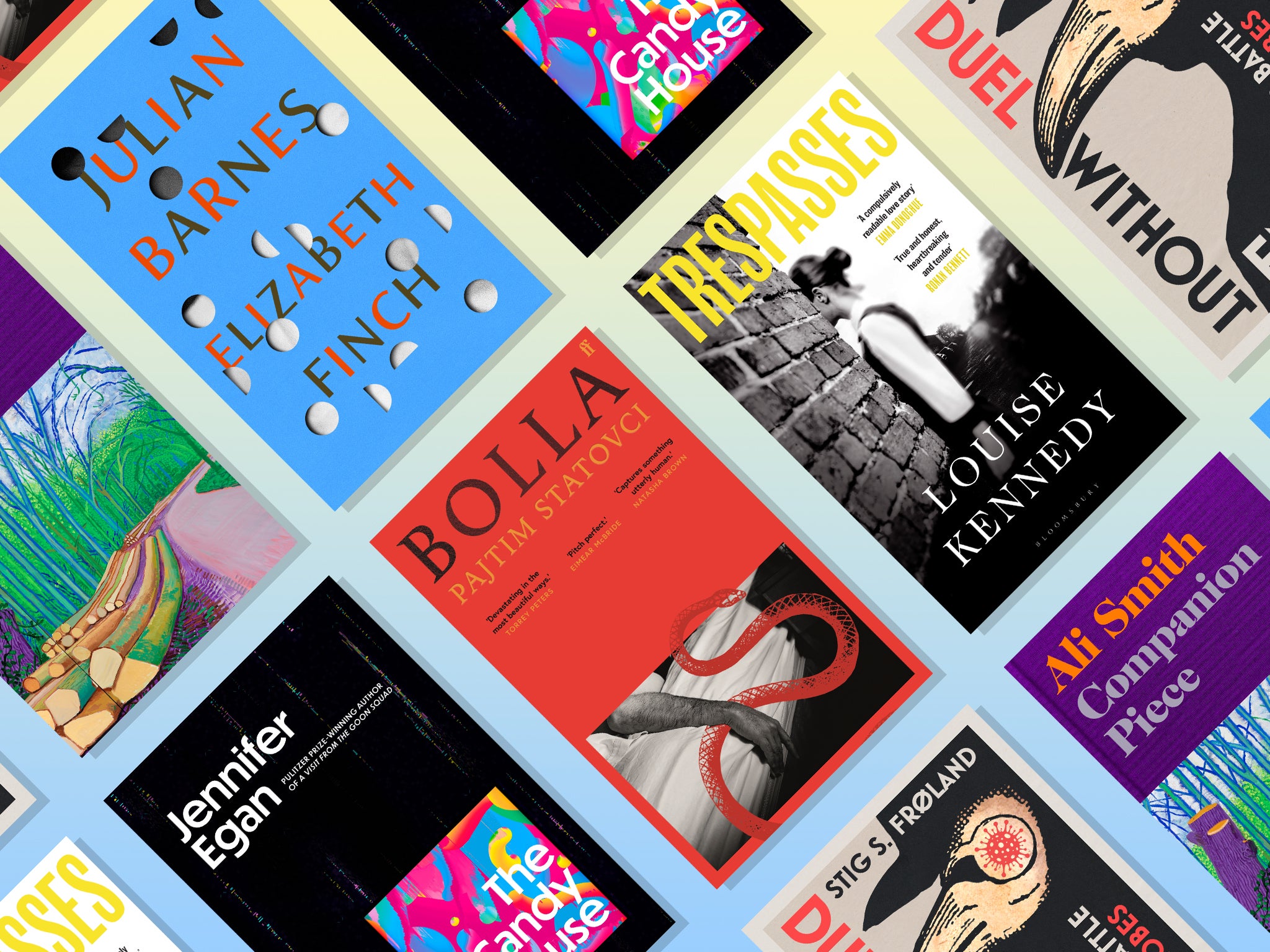
The BBC celebrates a special centenary this year, although I’m not sure “she” is still everyone’s favourite Auntie. Condensing 100 years of its history into under 300 pages is no easy feat, and Simon J Potter does an accomplished job in This is the BBC: Entertaining the Nation, Speaking for Britain 1922-2022 (Oxford University Press). The book contains many tasty nuggets. The first “funny football radio show”, for example, came in 1923, with witticisms courtesy of Arsenal director Charles Crisp, a name funnier than his jokes, judging by his “wisecracks” about referees.
The book deals with the Beeb’s dark modern era, and Potter details how, in the 1960s and 1970s, there was “a widespread tolerance of sexual harassment” inside the corporation. However, given these were times in which “fêted” presenter Jimmy Savile was raping children and Stuart Hall was committing sexual assaults on BBC premises, it surely merited a chapter title more damning than “Transformation and Stagnation, 1960-1979”.
Modern-day Everest climbing is often the preserve of the bored rich, a pursuit attracting the type of thrill-seekers who can afford £100,000 VIP tour packages. A century ago, however, George Leigh Mallory and a team of British climbers attempted to scale the world’s most famous peak “because it’s there”. In Everest 1922: The Epic Story of the First Attempt on the World’s Highest Mountain (Allen & Unwin), Mick Conefrey tells the full dramatic story of an extraordinary expedition.
There are plenty of insights into the relationship between scientists and the reporting of science stories in the media in Fiona Fox’s Beyond the Hype: The Inside Story of Science’s Biggest Media Controversies (Elliott & Thompson). As well as dealing with controversies such as the sacking of David Nutt and the rows over GM food, Fox, founding director of the Science Media Centre, also deals with the pandemic and Britain’s dubious record of care.
“Professor Martin Hibberd from The London School of Hygiene & Tropical Medicine was in Singapore when news of the virus first emerged, working with public health experts there in pandemic preparedness,” Fox notes. “He watched bewildered as the UK government failed to implement the preparedness plans he knew had been developed here – measures such as mass community testing and contact tracing – from the very start of the outbreak. Singapore had a very similar plan. ‘But the difference is they actually implemented it,’ Hibberd said.” Singapore has a population of 5.45 million and suffered 906 deaths by February 2022. If the UK had the same death rate per population, we would have had around 11,000 deaths in the same period, instead of 160,000.
Marianne Eloise was diagnosed as autistic and with ADHD in her late twenties. In her candid, witty memoir, Obsessive, Intrusive, Magical Thinking (Icon Books), the journalist offers a powerful account of what it is like to feel trapped by mental health problems and obsessions. She is unsparing in her account of her own behaviour – shoplifting, self-harming, breakdowns – but leavens the confessions with a self-deprecating humour. And it’s hard not to empathise with her honest account of how a “twitchy brain latches onto any bad thought”. The book is full of constantly surprising reference points – everything from Charlotte Runcie’s gorgeous book Salt on Your Tongue to Mac’s mum in It’s Always Sunny in Philadelphia. A brave book that puts vulnerability fully on show.
My final non-fiction recommendation this month is Nick Duerden’s Exit Stage Left: The Curious Afterlife of Pop Stars (Headline). This jocular account of life away from the music limelight is full of tales of drug addiction, bankruptcy, depression and divorce, although they are told with warmth and compassion. Duerden interviewed dozens of musicians, including Suzanne Vega. The folk-pop musician knew her star was waning, she admitted, when the record company “would no longer send a car to pick me up from the airport”. The tale of the bitter collapse of 1980s hitmakers Frankie Goes to Hollywood is particularly engrossing, with some very earthy quotes from guitarist Brian Nash, who left the music business to be an electrician and then a funeral celebrant. “I was a good electrician,” he says.
Among the best debut novels this month are Aiwanose Odafen’sTomorrow I Become a Woman (Scribner), the story of a complex relationship between a Nigerian mother and daughter, and Jonathan Page’s Blue Woman (Weatherglass Books), a rich, tender story about a painter called Rose and her struggles both within the suspicious world of art and in her troubled personal life.
Novels by Pajtim Statovci, Louise Kennedy, Jennifer Egan, Ali Smith and Julian Barnes, as well as Stig S Frøland’s book on microbes, are reviewed in full below.

Companion Piece by Ali Smith ★★★★★
One of the many enriching things about Ali Smith’s fiction is that she presents, with depth and skill, the people who are, in her words, “shunted to the edge of things”. In Companion Piece, which is both a pithy standalone novel and a coda to her wonderful Seasonal Quartet, Smith’s central character is the loner Sandy, who is dealing with the trauma of having a father fighting for his life in hospital. The novel is set during the pandemic and Sandy, who is looking after his dog, cannot visit her father regularly because of Covid restrictions.
Like her novels Autumn, Winter, Spring and Summer, Smith deftly portrays our current malaise, living in what has become a “land of union-jack-the-lads”. She inventories many of the dismal aspects of this new blighted decade, including the behaviour of the police during the Sarah Everard investigation. In these damning state-of-nation passages, Smith uses her razor wit to skewer the sort of government spokesmen who talk on radio as if they were “reciting advertising copy”. When one person insists to Sandy that the pandemic is over because that’s what the government says, she replies: “Yeah, but what’s said about what’s happening and what’s really happening are often quite different things.”
Although there is a danger that topical fiction fades quickly, it is hard to see how Smith’s biting comments will rapidly fade in relevance, as, for example, when she lambasts puffed-up politicians who “make themselves huge, as bloated as barrage balloons”. It was an image that came straight to mind recently watching our prime minister gurning like a cheap Benny Hill tribute act as Rishi Sunak addressed the House of Commons about the catastrophe in Ukraine.
Amid the anger and the clever wordplay, there are also paragraphs of transcendent grace and beauty – including a memorable passage about how walking in empty woods during the quiet of lockdown evoked a “new sound palette in itself”. Alongside Sandy’s tale is the parallel story of a young medieval woman, a talented apprentice blacksmith, whose mother and employer have died in a previous plague. Although the two storylines don’t merge seamlessly, Smith is reminding us about the truth of Britain’s past, including the practice of branding “vagabonds” with the letter V.
Companion Piece, whose cover features a detail from David Hockney’s Felled Trees on Woldgate, is a beautifully written and presented book. Smith writes about what matters in a humane, wise, funny and puncturing way. Yet for all the anger and despair, she conjures a heart-warming ending, one that seems to suggest that the best of the human spirit will, in the end, somehow emerge triumphant.
‘Companion Piece’ by Ali Smith is published by Hamish Hamilton on 7 April, £16.99
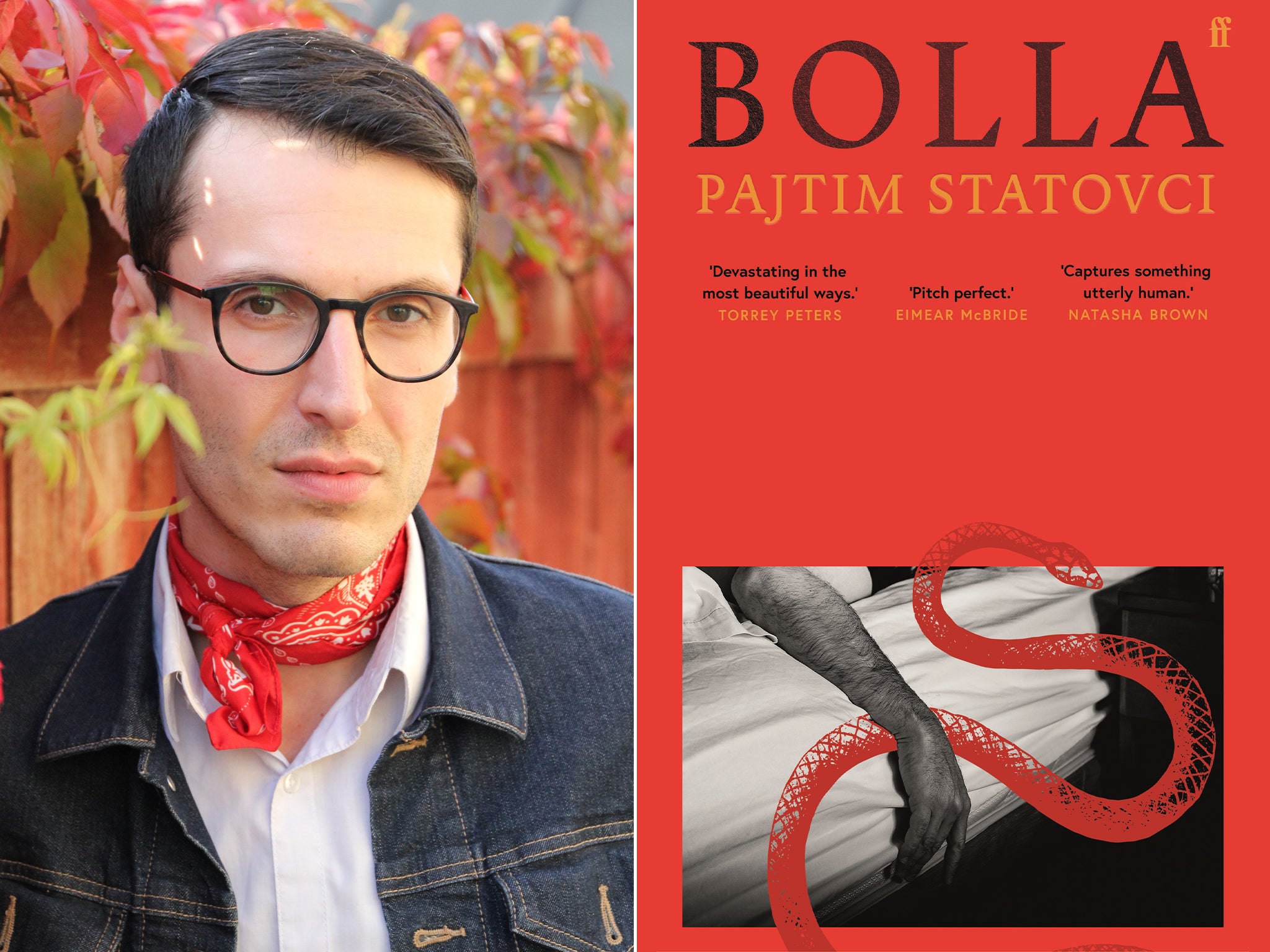
Bolla by Pajtim Statovci ★★★☆☆
Pajtim Statovci’s novel Bolla is in part an unflinching account of the misery that war brings to ordinary people – so absorbing it alongside daily news reports of Russian atrocities made for a deeply uncomfortable reading experience. “We can only keep the radio on for a short time because it never tells us any good news,” says one character, echoing, surely, the thoughts of most of us during this wretched tragedy.
Statovci, who was born in Kosovo to Albanian parents, became a refugee of sorts at only two when his parents fled the Yugoslav wars. His novel, translated from the Finnish by David Hackston, is partly set in 1995, when the Bosnian war has catastrophic effects on Albanian Arsim, an aspiring writer, and Serbian Miloš, a medical student. Their affair, which Arsim keeps secret from his wife, ends in misery.
Bolla is a deeply powerful novel – it won the Finlandia Prize – and is all the more challenging because Arsim, 22, is a repellent protagonist. He is unfaithful to his wife and mistreats and abuses his children. He is later sent to prison for 13 months for sex with a minor. Miloš is even more damaged by the twists of fate in a grim story.
It is impossible to read Bolla without seeing the vividly portrayed parallels to events in Ukraine and Russia: the protests, the senseless slaughter, cities emptying as thousands of refugees flee abroad (Albanians, in the novel’s case) and, behind it all, unscrupulous politicians. In the book and in life, people become increasingly inured to the bloodshed. “The Serbian troops move around sporadically, like a forest fire, ruthlessly occupying entire areas at a time, sowing terror as they go. Life has turned cruel, and people have become used to it, a dead human body is no longer a dead human body but an image of a dead human body,” writes Statovci.
When Miloš described some of the barbarity he had seen, Arsim remarks: “Imagine that someone can do something so terrible, so repulsive to another human being.”
Sadly, in 2022, none of us have to imagine.
‘Bolla’ by Pajtim Statovci is published by Faber on 7 April, £14.99
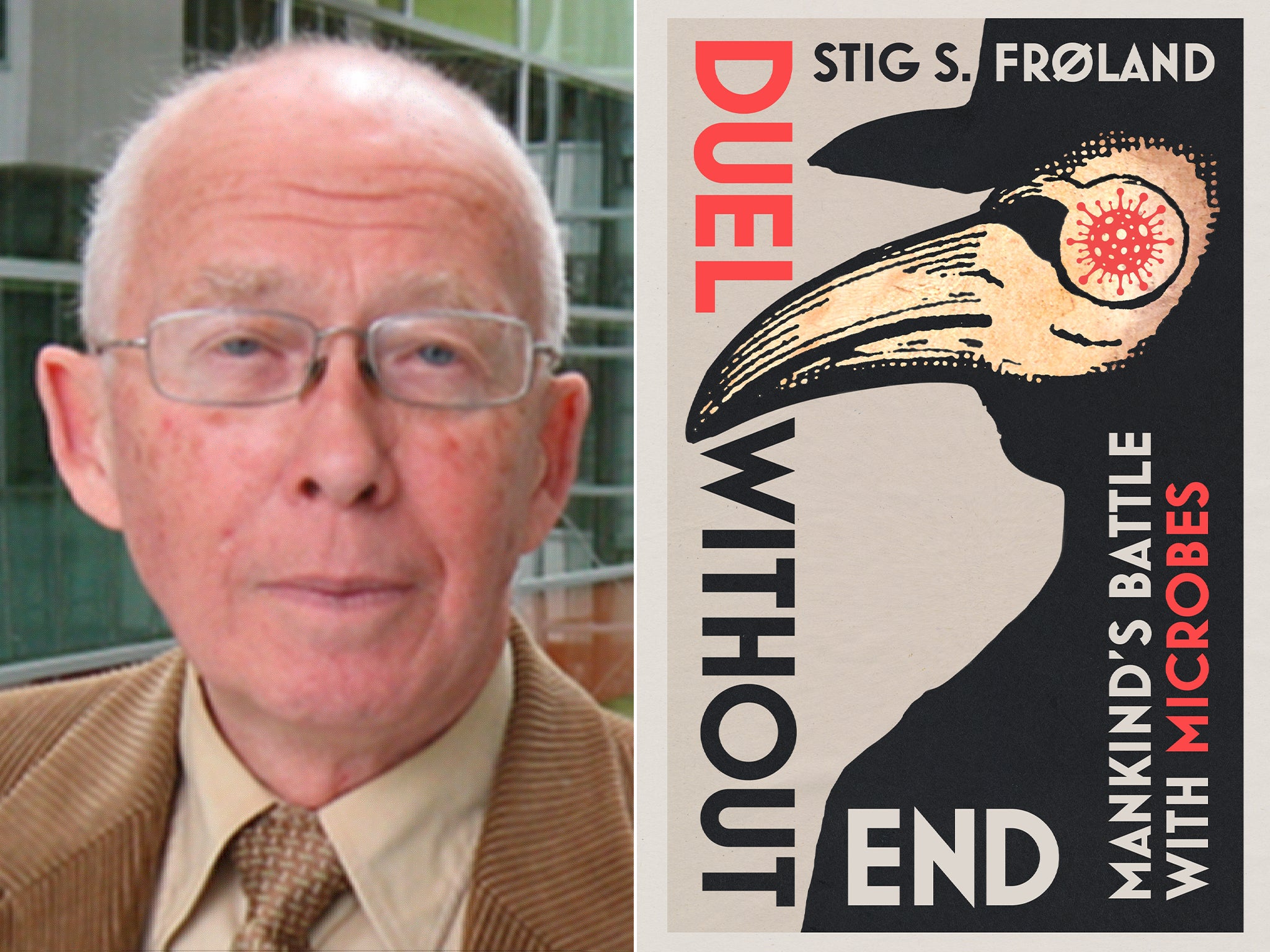
Duel Without End: Mankind’s Battle With Microbes by Stig S Frøland ★★★★☆
As we all continue to try to live through humankind’s latest fight against microbes, a book about pandemics and infectious diseases might seem a bit draining – especially a publication coming in at more than 600 pages – but Stig S Frøland’s Duel Without End: Mankind’s Battle With Microbes (Reaktion Books, translated by John Irons) is a sweeping account of an important subject.
Frøland, Professor Emeritus of Medicine at the University of Oslo, offers analyses and insights – and stockpiles of rich medical detail. A few examples? The recent spread of the Asian tiger mosquito to North America came via the import of used car tyres from Asia (these bugs like to hop on transport rather than fly long distances). And don’t get too smug, there is a thing called “airport malaria” in Paris, Brussels and London.
Although scientists are making great strides (look how speedily Covid-19 vaccines were ready for use in the general population of the industrialised world), the future may be very difficult, especially with the climate crisis. “Life-threatening fungal infections have recently been linked to global warming,” warns Frøland, noting that ticks and waterborne microbes “will possibly increase their range”. The most chilling paragraph in the book, however, is: “We will at some point get a new influenza A pandemic – and it could come at any time, probably from wild or tame species of bird, or possibly from pigs.” And if that’s not enough to fret about, there are even extra-terrestrial microbes that may cause problems.
Alongside all this cheer, there are also scores of eye-catching photographs and illustrations to look at, although you might need a strong stomach to linger on the graphic of a smallpox victim.
Despite the depressing subject matter, this is a fascinating book of history and medical history, one that explores the social, economic and even sexual context of the human race and its fight against disease.
‘Duel Without End: Mankind’s Battle With Microbes’ by Stig S. Frøland is published by Reaktion Books on 11 April, £25
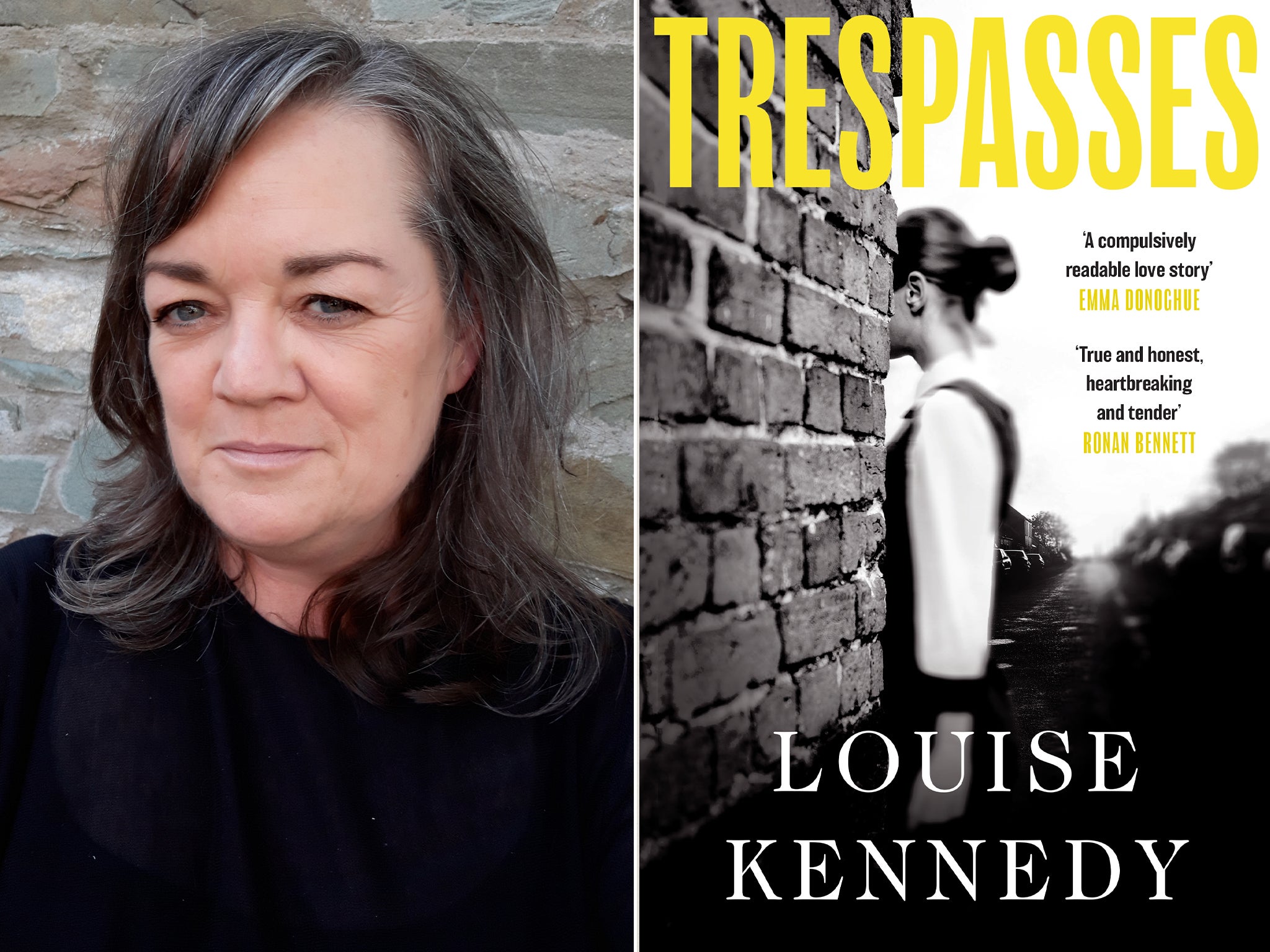
Trespasses by Louise Kennedy ★★★☆☆
I enjoyed Louise Kennedy’s short story collection The End of the World is a Cul de Sac. Her debut novel, Trespasses, is also set in Ireland, in a small town near Belfast during The Troubles of the 1970s. Although the backdrop to the drama is booby-trapped devices, petrol bombs, rubber bullets and internment, the thrust of the narrative is the affair between a young teacher called Cushla and a middle-aged “ladykiller” solicitor called Michael Agnew.
Kennedy captures the shifting power balances of a troubled affair and the anxieties and worries of a young woman who feels like an outsider. Some of the best moments are in the details about the small-mindedness of community life at the time – such as a hotel receptionist asking Michael if he and his wife enjoyed their stay, prompting Cushla to mutter “sarky bitch” under her breath – and the action builds steadily towards a tragic end.
Trespasses is a solidly executed tale of personal and political turmoil.
‘Trespasses’ by Louise Kennedy is published by Bloomsbury on 14 April, £14.99

Elizabeth Finch by Julian Barnes ★★★☆☆
Elizabeth Finch, the 17th novel of Julian Barnes’s glittering writing career, offers an alluring portrait of a stimulating, quirky and forthright lecturer, one who savours the demands of a philosophical life. We are handed plenty of Elizabeth Finch’s wisdom – including bon mots such as “as a general rule, beware of what people aspire to”; and “a politician’s main function is to disappoint” – yet it’s difficult, despite her intellectual appeal, to completely buy into why the novel’s narrator, a devoted student called Neil, is so besotted with her.
Although Elizabeth Finch is interesting company – and Barnes conveys why many students on her “Culture and Civilisation” course would respond to her guiding principles of learning to think for themselves and not being taken in by the proclaimed values of their own age – we essentially see this enigmatic individualist through Neil’s enthralled eyes. Although the twice-divorced former actor is capable of being jaundiced about love, friendship and the frailty of human character (his own included), he is unusually gushing about a woman he sees as a philosophical “goddess”. Towards the end of the slim novel, Barnes offers a sly counterpoint, with the less-than-flattering opinions about the late academic from Neil’s fellow students Anna and Geoff. Personal history may be as unreliable as national history.
The middle of the three sections is about Julian the Apostate, a historical figure who fascinated Elizabeth Finch. Although the segment is a thought-provoking evaluation of history in itself, as well as shining with stimulating observations about what she called “the crooked timber of humanity”, it is full of chewy philosophical observations that require the sort of slow reading and careful thought that Elizabeth believes is missing in the modern world.
Perhaps we are not meant to get to grips fully with either Elizabeth or Neil and simply enjoy the mystery of their relationship and hers to the world. And, as ever with Barnes, there are many droll, satisfying moments in the novel, including the lunches between Neil and Chris, the brother of the late academic. They meet at a time when Neil is considering writing a memoir about his old tutor, prompting some interesting thoughts on the nature of biography.
“It’s an odd thing, life, don’t you find?” Chris muses during one of their chats. It’s hard to disagree.
‘Elizabeth Finch’ by Julian Barnes is published by Jonathan Cape on 14 April, £16.99
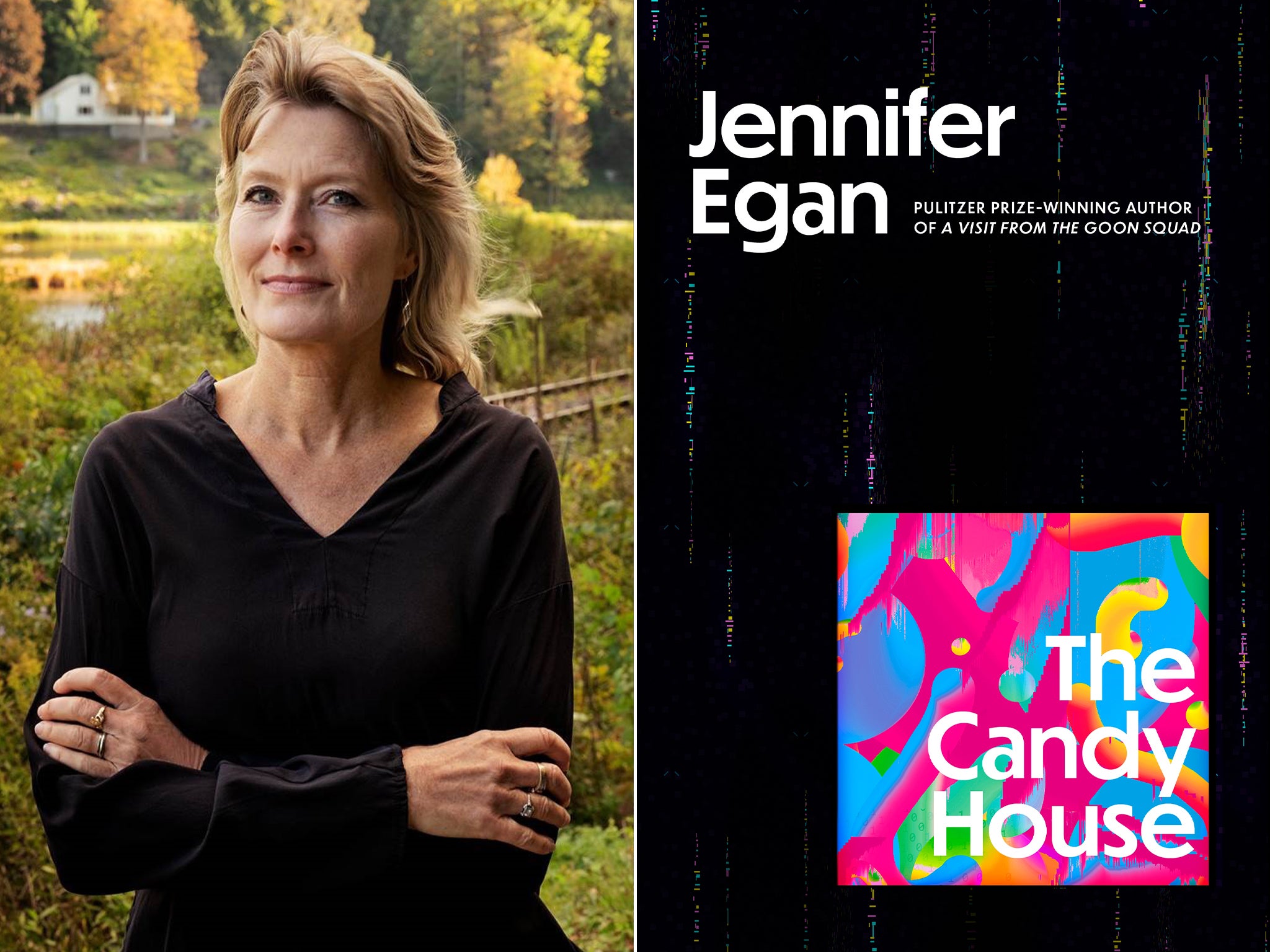
The Candy House by Jennifer Egan ★★★★☆
The Candy House features welcome revisits from some members of the goon squad, as Jennifer Egan shows us subsequent events and fates being played out in the lives of characters from her 2011 Pulitzer and National Book Award-winning novel A Visit from the Goon Squad.
Like that magnificent work, The Candy House is also a mosaic novel and Egan uses a similar structure, with myriad interlinked narratives and varying chapters, to show us what happened to Bennie Salazar, Sasha Blake, Lou Kline and others.
Egan explores some big overarching themes, in a near future in which technology has allowed big companies to “externalise” memory. Entrepreneur Bix Bouton, a graduate student in computer science in The Goon Squad, is now 40 and restless. He strikes it rich with his Mandala company by inventing “Own Your Unconscious” and “Hey, What Ever Happened To”, memory revolutions that allow people to revisit their own past and even gorge on strangers’ recollections and sexual fantasies. It is clear that this level of personal violation troubles Egan more than her rich social media tycoon Bix. Egan shows us the state of the current world, one in which people seem bafflingly willing to put their faith in tech tycoons; it is no coincidence that a key moment of the book is the warning to “never trust a candy house”, a Hansel and Gretel allusion that provides the title.
Egan presents a modern human landscape of narcissism and utter self-absorption, one where any ill-at-ease man immediately goes on their smartphone to “rejoin a virtual sphere where his identity is instantly reaffirmed”. Not everyone has fallen for this. Some of the most individualistic characters in the novel are those yearning for genuine human responses.
I hope this isn’t making The Candy House sound too heavy, because it is a wonderfully engaging and entertaining novel, full of eccentric and absorbing characters – including Alfred, a man who plays a strange screaming game, and creepy Lincoln, the bearded empiricist and metrics expert who relies on data to snare his girlfriend.
She also has a gift for zippy one-liners (“Roxy’s promise was her main act”, “a skin formed over her sadness”) and a droll wit that is evident throughout. It’s hard not to laugh at the scene in which a young girl inadvertently sees her father’s genitals and decides they look like overgrown pink grapes, prompting her to reflect that there is no way she will ever have sex with a man “whose testicles look like that”. As the people in the book discover, life brings such disappointments. The Candy House demonstrates that Egan remains a writer of exhilarating intellectual spark.
‘The Candy House’ by Jennifer Egan is published by Corsair on 28 April, £20
Join our commenting forum
Join thought-provoking conversations, follow other Independent readers and see their replies
Comments


Bookmark popover
Removed from bookmarks